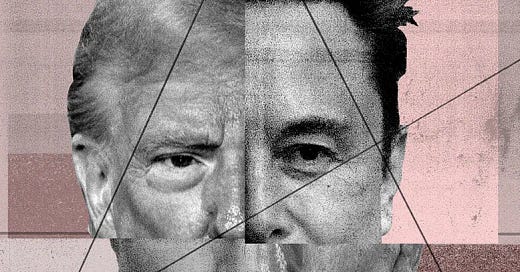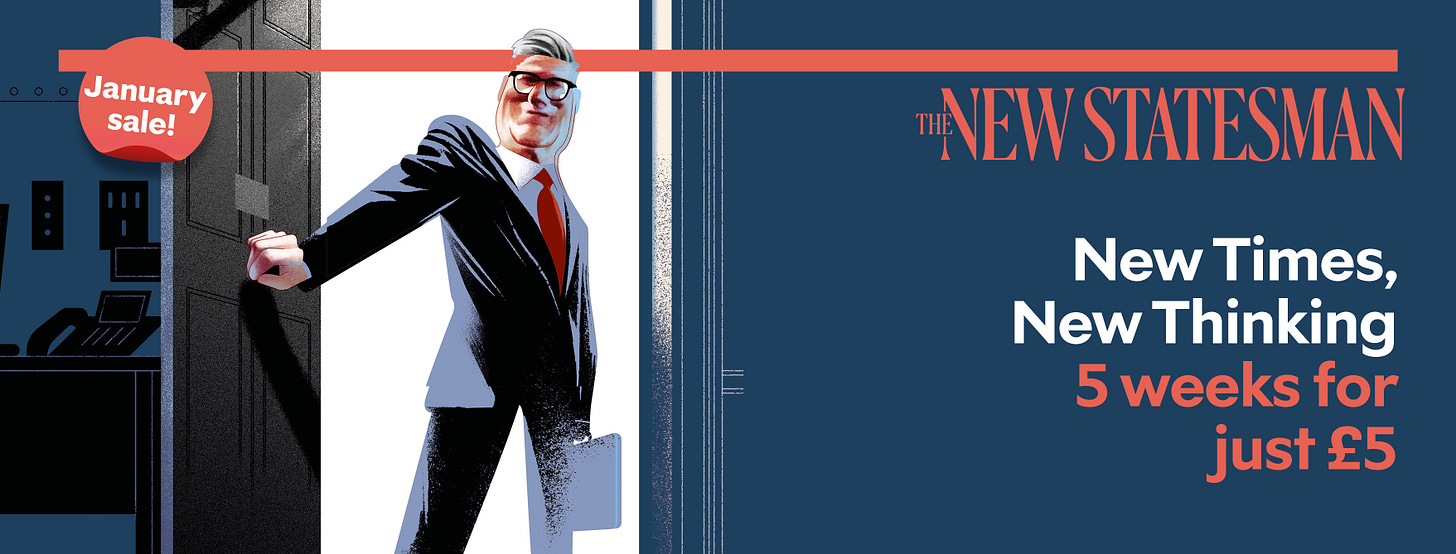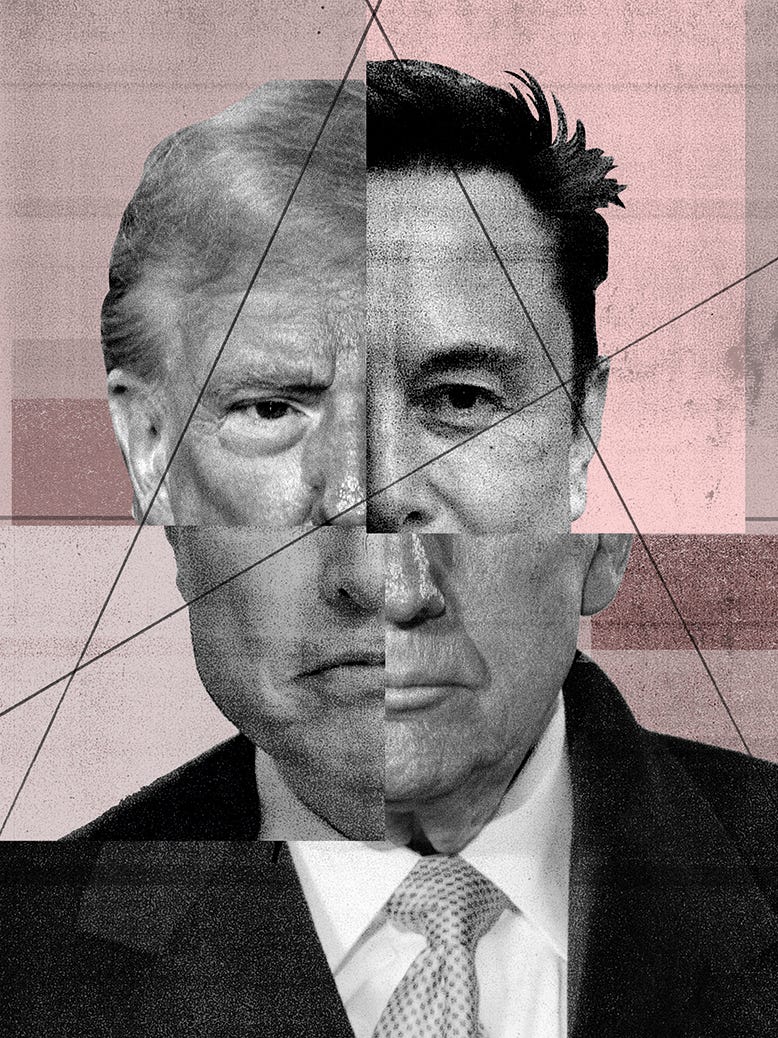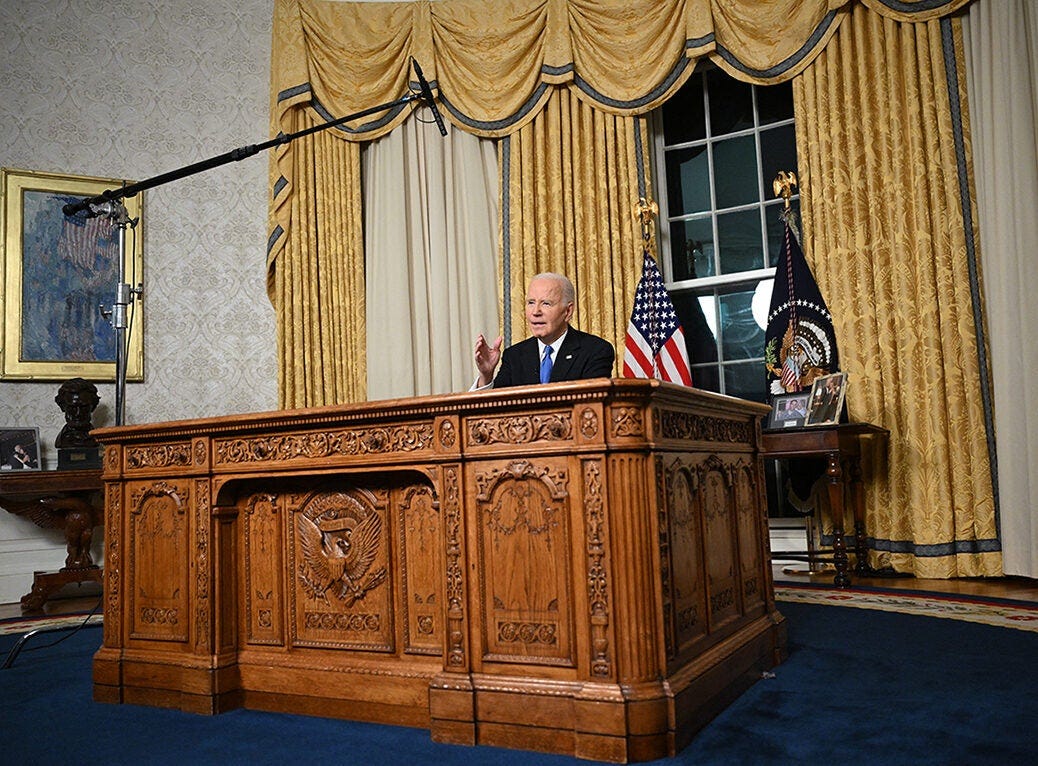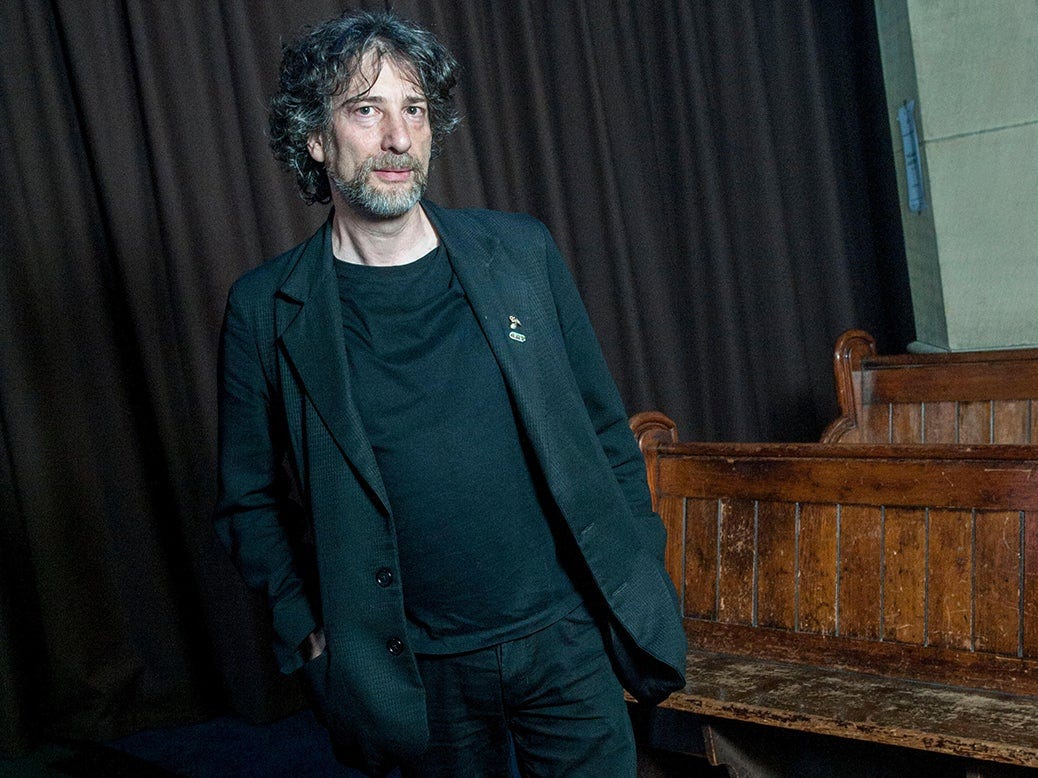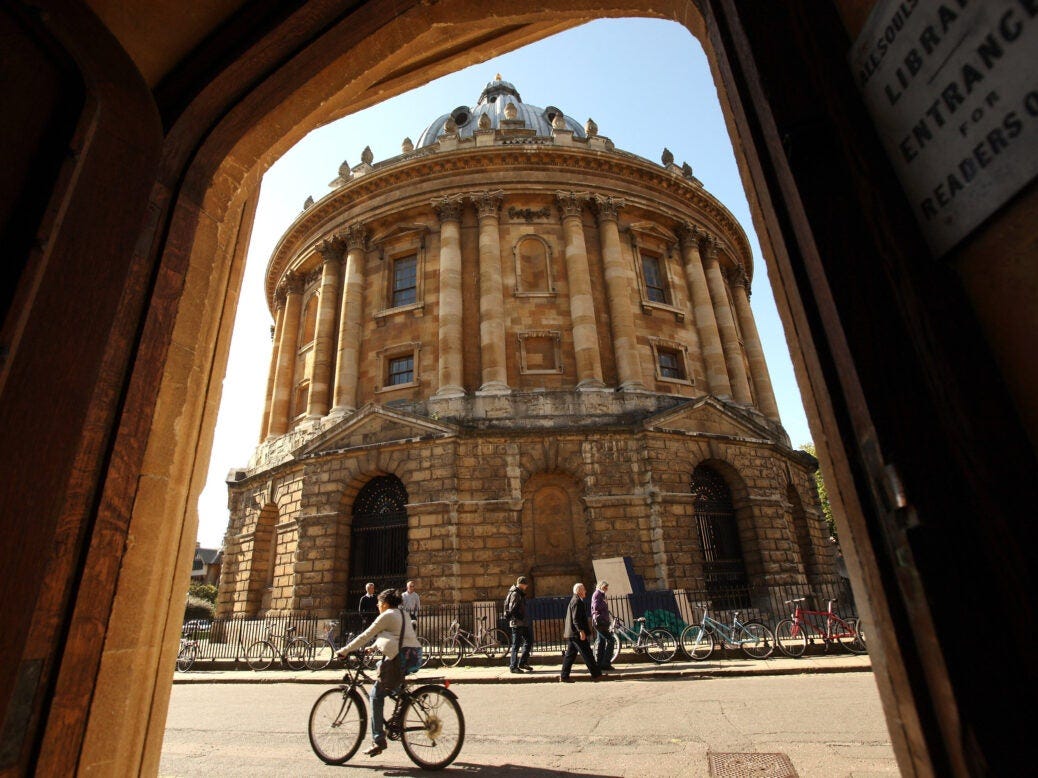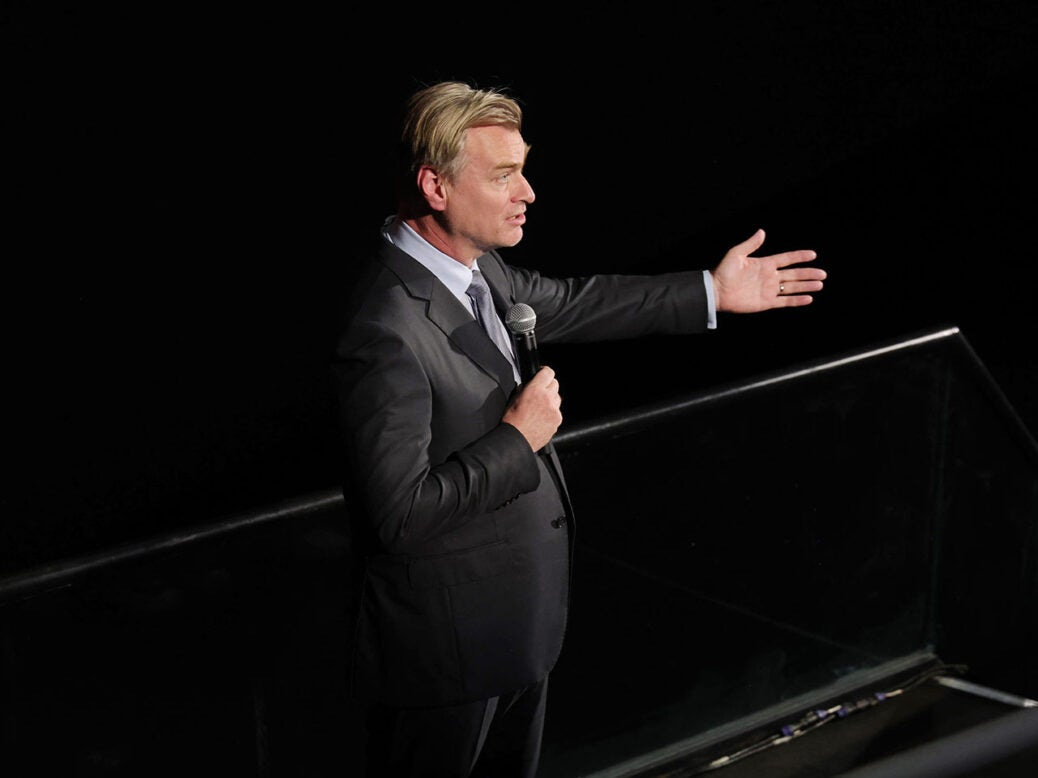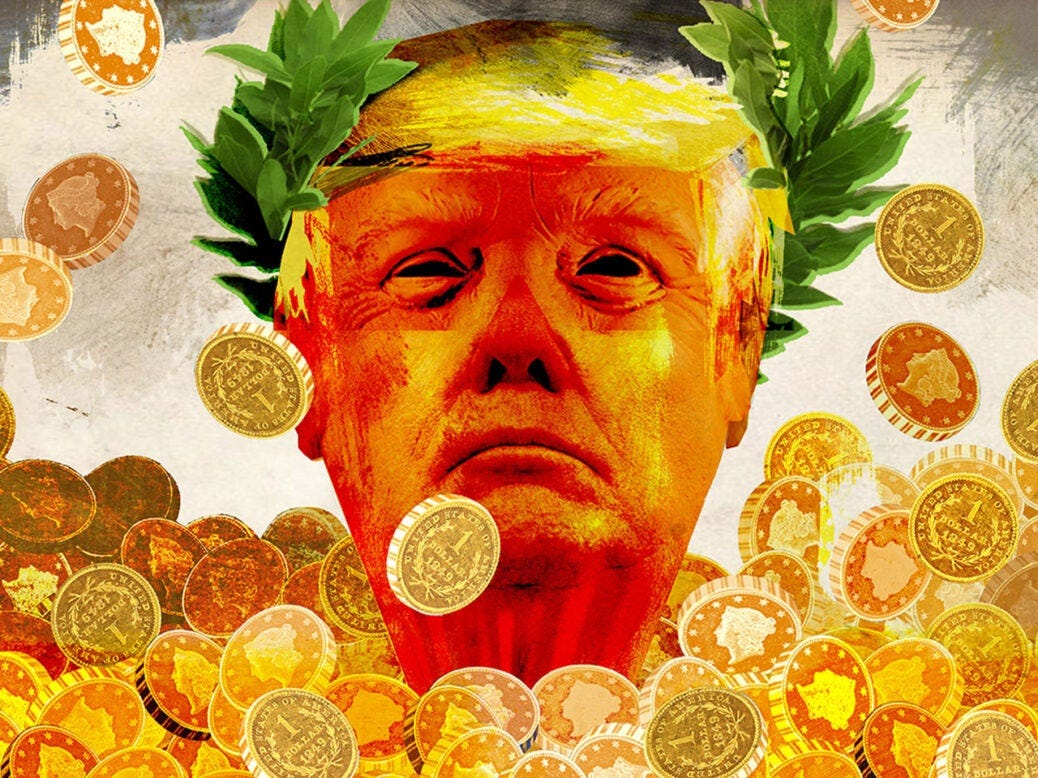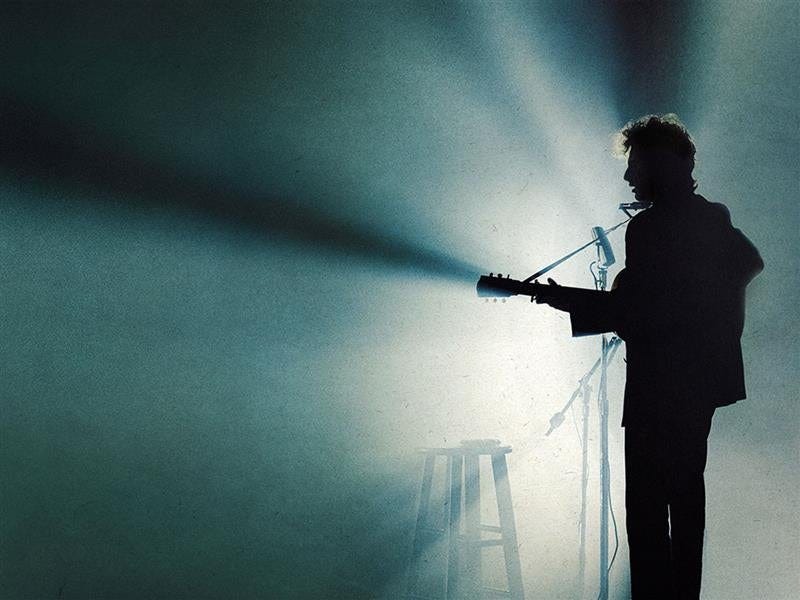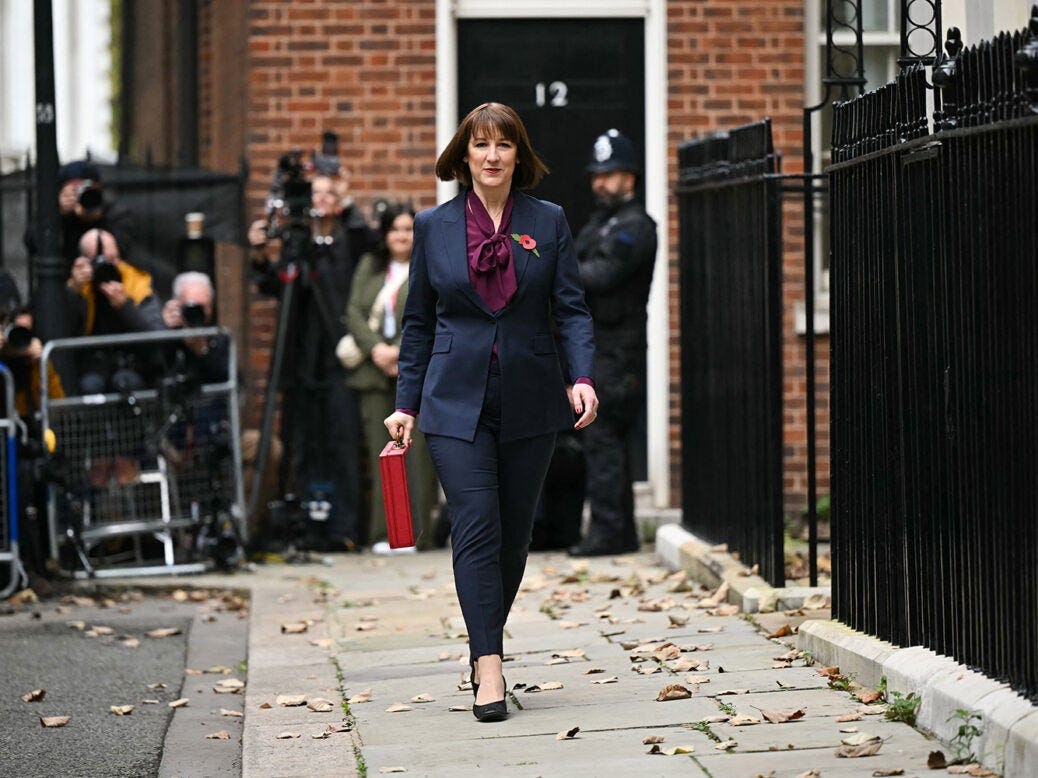The Saturday Read: A ceasefire
Inside: Biden's legacy, Trump's inauguration, Gaza, Neil Gaiman, Oxbridge rejects, writing by David Lynch, and Christopher Nolan's take on the Odyssey.
Good morning. Welcome to the Saturday Read, the New Statesman’s guide to politics, culture, books, and ideas. This is Finn with Nicholas, Pippa and George.
After nearly 500 days of war a ceasefire in Gaza has been agreed. The first phase of the deal should end the fighting in the Gaza Strip, allow displaced Palestinians to return to their homes, and see the influx of aid. Hamas will return 33 of the 98 remaining hostages and Israel will release several Palestinian prisoners. Donald Trump wrote on his platform Truth Social: “This EPIC ceasefire agreement could have only happened as a result of our Historic Victory in November, as it signalled to the entire World that my Administration would seek Peace and negotiate deals to ensure the safety of all Americans, and our Allies.”
Trump is never one to shy away from a victory lap, but in this case, as our international editor Megan explains, it is not mere “bluster”. She provides us with some sober analysis: insiders say Trump’s involvement did put real pressure on the Israeli side to accept a deal. But just as he claims responsibility for the arrangement, he now must claim responsibility for the future of the region too.
There is plenty more below on Gaza, Biden and Trump. Stick with us as we guide you through this unusual, hopeful and tense moment. Freddie signs us off with a note from Washington, as he prepares for Trump’s inauguration. As ever, thanks for reading and have a great weekend.
1—“Bastard offspring of neoliberalism”
Backing Donald Trump, stoking the summer riots, calling for the downfall of Keir Starmer – what is Elon Musk’s game? For our cover story, “The Disruptors” , Quinn Slobodian stepped forward to give us a guided tour of Musk’s brain. Featuring Silicon messianism, video games and The Hitchhiker’s Guide to the Galaxy. NH
We have to entertain the idea that, for Musk, state capture is not an end in itself, but only a prelude to state exit – starting a new polity either on Earth (trialled by the incorporation of a new company town in Starbase, Texas) or on Mars. But how seriously should we take this long-termism? Would it not be more accurate to see Musk as the consummate short-termist? A good historian finds the personality of their subject not in the motivation of a single ego, however powerful, but in the context out of which they rose. What if we asked not what worlds Musk is making but what worlds made Musk?
2—“Irascible and reluctant”
Joe Biden has immense faith in his own influence, Katie Stallard writes. As a quality it may have helped to stabilise relations with China, but was causal when it came to the calamitous withdrawal from Afghanistan. This is a fair – if robust – critique of Biden’s foreign policy legacy. FMcR
The single most consequential failure in the Biden team’s approach to foreign policy, Schake told me, was the “gap between their grandiose claims and what they are actually willing to risk or commit to achieve it”. On Ukraine, Biden spoke as though the future of Western democracy was on the line, but his actions and his administration’s failure to address long-running challenges in America’s defence industrial capacity indicated otherwise. Having declared China the “pacing challenge” for the US military, she noted, the defence budget under Biden did not even keep pace with inflation. He vowed to lead a valiant alliance of democracies against the autocratic threat from Beijing, then retreated into economic protectionism and barely concealed nationalism. “They want allies to reduce reliance on China, but they won’t develop an international economic policy that helps us and allies achieve that,” Schake said. “They talk allied solidarity but won’t offer market access or allow a trusted ally to buy a failing American company.” In his final weeks in office, Biden blocked the proposed takeover of US steel by the Japan’s Nippon Steel on national security grounds.
3—“A celebrated feminist hero…”
The allegations published against fantasy author Neil Gaiman this week have disturbed his fans. Rachel Cunliffe explores the comfort she once drew from Gaiman, and asks what she can do with those memories now. GM
There’s a photo of me with Neil Gaiman. It was taken in 2013 at the Cambridge Union, at one of the first events he did to promote his novel The Ocean at the End of the Lane. I am 22 and look anxious and manic – the kind of smile people who are aware they aren’t photogenic have when they know they’re going to want to show the photo to everyone. Gaiman, despite having just completed a five-hour event and book signing for 300 people, looks completely relaxed, as if he’s known me for years and we often take photos together like this.
4—“The society of rejects”
America has the Ivy League, France has its grandes écoles, but the Oxbridge national neurosis is something else. As offers and rejections make their way to this year’s applicants, Bethany Elliott has some sympathetic and constructive words for those left behind – as well as an excellent interview horror story. NH
For a country so fixated on two seats of learning that we follow the elections of their chancellors like the football league, it’s time to remove the stigma of not quite making the team. Anyway, rejection teaches resilience better than any university. Within a year of completing postgraduate studies at Oxford (a victim of the reapplication reflex) I was turned down to be an air hostess, too short to reach the overhead lockers. Now that’s rejection.
5—“Only Nolan can play god”
Finn explains there’s nothing coincidental about Christopher Nolan selecting the story of The Odyssey for his next film, the “most anticipated performance of his life”. It is a perfect text, and a perfect time, for the reactionary director. GM
If Nolan’s greatest desire is to remind his protagonists that they are subjects vulnerable to larger forces, then the classics provide a ready-made framework for him to do so. The Odyssey, for all Odysseus’s smarts and deception, is a manifesto: mortal agency is always sublimated to the power of the gods (just as humans pay fealty to the atomic bomb, or the power of the Nazis). The gods gathering on Mount Olympus to discuss Odysseus’s fate is a golden opportunity for Nolan’s agitprop: proof that there is a higher order that exceeds the comprehension and capabilities of man; that hubris is the true original sin.
To enjoy our latest analysis of politics, news and events, in addition to world-class literary and cultural reviews, click here to subscribe to the New Statesman. You'll enjoy all of the New Statesman's online content, ad-free podcasts and invitations to NS events.
When David Lynch announced his emphysema last august he concluded “I am filled with happiness, and I will never retire.” He never did. The great American filmmaker succumbed to his illness this Thursday.
Blue Velvet was the first Lynch film I saw. Four of us watched it in a living room. Three of us were in the same living room for his next film the next week – the fourth refused to ever watch another film with us again.
There are two things to read: first, a piece by David Foster Wallace after his 1996 visit to the set of Lost Highway (he defines “Lynchian” as “a particular kind of irony where the very macabre and the very mundane combine”); and then, Lynch’s own 2013 piece in the New Statesman, a musing on his lifelong meditation practices.
We’re building 9.2GW renewable energy capacity across three continents. Enough to power nearly eight million homes with green energy – energy that benefits climate, nature and people. Each project bringing us a step closer to our vision of creating a world that runs entirely on green energy. Find out more here.
6—“Gorged oligarchs”
JFK was said to have formed an administration of the “best and brightest”; Donald Trump’s is looking more like the “rich and richest”. Washington these days is a bit like Moscow in the 90s, Will Dunn writes: a buyers’ market laid out for the super-wealthy. NH
Today’s plutocrats have a different kind of money to the aristocrats of the past, who owned land, or to the robber barons, whose wealth came from the revenues of their industrial monopolies. The wealth of Trump’s team is made and stored in financial markets; their net worth is the sum of other people’s confidence in their power. It travels easily and can buy citizenship, safety and influence almost anywhere. This is why Trump will remain loyal to his billionaires, or at least to the policies that have enriched them: he is one of them.
7—“Handed by God to a street urchin”
A new biopic of Bob Dylan, starring Timothée Chalamet, is a fun flick. But it never attempts to challenge Dylan’s self-mythologising, Kate Mossman writes. GM
One of the most unappealing things about Bob Dylan, for me, put about by him and his fans, is the endlessly self-cancelling riddle that, because he’s a master of trickery and self-fictionalisation, there is no truly knowing him – hell, there is no truth at all! Emotionally, I find that this goes nowhere as an idea – but at least the shape-shifting and tall tales created the songs. The obscure origin story, his training with the “carnival”, was original in 1961 – though in James Mangold’s new film, it does get a lot of eye-rolling from his girlfriends. The Eternal Dylan Mystery is a line of defence taken by the film-makers in calling the movie A Complete Unknown, instantly detaching them from any obligation to get inside his mind or explore who he was on a psychological level. Such an approach would appeal to Dylan, of course, who helped with the script – and apparently acted out the whole part for Mangold.
8—“Her humanity, her autonomy”
The staggering abuse committed against Gisèle Pelicot horrified the world. Now her daughter has released a book, and with that, Anna Leszkiewicz writes, she has posed a question: can memoir be an antidote to shame? FMcR
Names are an important means of resistance: Caroline Darian gave herself a new one, and took the name “Dad” away from her father. Gisèle Pelicot used her husband’s name to make his crimes public, and lives privately under her maiden name. The baldness of the words Dominique Pelicot and his accomplices used to describe their acts became useful, too: who can convincingly claim to believe Gisèle Pelicot knew of and consented to her own assaults, when her assailants met on the chatroom “without her knowledge”? What could her husband reasonably deny, when he kept the evidence in a folder called “abuse”?
9—“Author, poet, bodybuilder”
The Japanese writer Yukio Mishima looked as good in uniform as he did on the page, and thanks to his ultra-traditionalist politics, he has become a pin-up of the reactionary manosphere. But look beyond the life to the work, writes Yo Zushi, and you’ll find something more delicate: a Romantic and an aesthete. NH
For all his far-right provocations and calls for manly nationalism, though – for all his marching up and down the streets of Tokyo with his toy militia, cosplaying imperial soldiers – it was only in a kind of aesthetic hedonism that he seemed to locate any final meaning. “For me, beauty is always retreating from one’s grasp,” he wrote a couple of years before his death. “The only thing I consider important is what existed once, or ought to have existed.” This pursuit of a paradise lost was what animated the author, regardless of its futility or even whether an authentic state of being had ever been anything but a myth.
10—“Warfare isn’t the answer”
The media descended into frenzy this week as the bond markets threatened to defenestrate Rachel Reeves. Thankfully we have Andrew Marr to tell everyone to calm down. Britain is facing serious ructions – these dramatics are a distraction. FMcR
If the Starmer AI strategy is actually implemented (big if) the government could become a respected player rather than the butt of online abuse. Again, what’s the alternative? Britain could still, along with the EU, decide to impose a more restrictive regime on Meta and X. But Starmer can’t turn his back on the revolution. He can’t pretend Donald Trump isn’t happening. I can see this becoming a great fissure in Labour politics. The Prime Minister wants to work with Trump so far as he’s able to, but Musk is making it harder for him. The left wants anti-social media regulations, restrictions and higher taxes. Stuff scary job-killing AI, they say, stuff Trump and stuff Musk. Emotionally, that is very appealing. However, the Blairites say: no, hold your nose, think of economic growth and the next election, and play a longer game. This, not whether or not to cart Rachel Reeves to the village pond, is the real choice ahead.
George’s Best of the Rest
Lila Shapiro: There is no safe word
Matthew Gasda: The death and life of Bohemia
Richard Brody: The enigmatic artistry of Terrence Malick
Emily Zarevich: Editing Hemingway
Adam Tooze: What energy transition?
This tiny fish’s mistaken identity halted a dam’s construction
Syria flooded with Pepsi and Pringles as rulers open economy – the market always knows best.
Fake Michael Parkinson “risks putting podcast hosts out of a job”
“Anxious” Gen Z call in the experts to change in a lightbulb
And with that…
Remember Joe Biden? The president still has a few more days in power, but in the minds of most Washingtonian grifters he became irrelevant a long time ago. As his fifty years in public life peters out bathetically, Biden is casting around for a legacy. His farewell speech in the Oval Office on Wednesday echoed President Eisenhower’s 1961 warning about the nefarious power of the “military industrial complex” with a screed against an oligarchic “tech industrial complex”.
Those tech oligarchs will be on the dais when Trump takes the presidential oath on Monday. Elon Musk, Jeff Bezos and Mark Zuckerberg will pay homage and, in return, claim their reward for ditching the Democrats for Trump. The $1 million each donated to Trump’s inaugural fund could prove the best investment these centibillionaires ever made.
Meanwhile, aspiring lieutenants dazzle, entertain and titillate the president in order to gain favour. Think of his defence secretary nominee Pete Hegseth’s diatribes against the woke virus in the military on Fox News. Has it worked? Bear Frank Underwood’s words in mind when you survey the inauguration: “Power is a lot like real estate. It's all about location, location, location. The closer you are to the source, the higher your property value”. When Trump delivers his second inaugural address, America’s new ruling class will be in view, just over his shoulder.
The New Statesman is home to the finest writing on politics, culture and ideas. To stay up to date, subscribe using the link above.
— Finn, Nicholas, Pippa and George.


